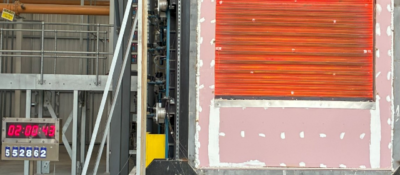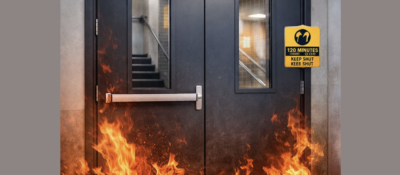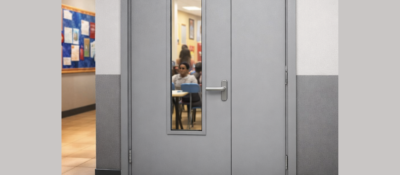Keeping your roller shutter in good working order is needed for security reasons, but also to save time and money in the long run. Regular maintenance can help prevent breakdowns, extend the life of your shutter, and ensure it operates safely. This guide covers everything you need to keep your commercial or home roller shutter in its best condition.
Regular maintenance of roller shutters ensures they operate smoothly and efficiently. It can prevent minor issues from escalating into major problems that could compromise the security of the premises. By keeping shutters in optimal condition, we also enhance their appearance and ensure reliable performance. Here are some benefits of maintaining roller shutters regularly:
Properly maintained shutters are less prone to malfunction, providing better security against break-ins and vandalism.
Like any mechanical system, roller shutters last longer when they are well-cared-for.
Regular maintenance reduces the risk of operational issues, such as jamming or uneven movement.
Ensuring that safety features and mechanisms are in working order can prevent accidents.
Investing time and effort into maintaining roller shutters can lead to substantial cost savings over time.
Maintaining roller shutters is essential for ensuring their longevity and optimal performance. By regularly attending to these security features ourselves, we can prevent common issues and ensure they continue to operate smoothly.
Below are some tips we can follow to keep our roller shutters in their best condition.
Roller shutters accumulate dirt and debris, which can affect their functionality. To clean them, we should first remove any surface dirt with a soft brush or cloth. Next, we can wash the shutters with a mild detergent and water solution, taking care not to use abrasive materials that could damage the surface.
After cleaning, lubrication is crucial. We should apply a silicone-based lubricant to all moving parts, such as the roller, hinges, and tracks. This reduces friction, prevents rust, and ensures smooth operation. It's recommended that we lubricate our roller shutters at least twice a year.
Regular inspection of our roller shutters can help us identify potential problems before they escalate. If we notice any of these signs, it's important to address them immediately to prevent further damage.
We should look for signs of wear and tear, such as:
Rust is one of the most common issues with metal roller shutters. To prevent rust from forming, inspect your shutters regularly for signs of corrosion, particularly around the bottom slats, guides, and box. Clean away any dirt, salt, or debris and touch up paintwork if the protective coating is chipped. For coastal or high-humidity environments, consider applying a rust-inhibiting spray or upgrading to aluminium shutters, which don’t rust.
Don’t ignore small problems! Minor faults can quickly turn into bigger, more expensive repairs if left unchecked. If you notice unusual noises, slow operation, or misaligned slats, it’s best to address the issue early.
While regular checks can be done yourself, a professional service will spot things you might miss. We recommend having your roller shutters professionally inspected and serviced at least once a year. A trained technician can check the motor, test the safety features, and ensure everything meets legal and insurance requirements.
Roller shutters are essential for the security and insulation of properties, but like any mechanical system, they can develop issues over time. We'll discuss some common problems that can occur with roller shutters and how to address them.
At times, you may find that your roller shutters are not operating smoothly and may become stuck or jammed. This can be due to a build-up of dirt and debris, rust, or a lack of lubrication on the shutter mechanism.
To resolve this issue, we should:
For more detailed guidance on how to fix sticking or jammed shutters, you can refer to our roller shutters repair guide
Roller shutters should operate relatively quietly. If there's a noticeable increase in noise during operation, it could indicate a problem. Common causes of noisy shutters include loose components, lack of lubrication, or debris within the tracks.
Here's what we can do to reduce the noise:
If the problem persists, it might be helpful to consult our article for further assistance.
Damaged or misaligned tracks can prevent roller shutters from opening and closing correctly. This issue can be caused by physical impact, wear and tear, or incorrect installation.
To address this, we should:
For a step-by-step approach to repairing or replacing tracks, our roller shutters repairs resource will be useful. It's also important to remember that if the damage is extensive, seeking help from professional roller shutters repair services may be the most effective solution.
Keeping essential roller shutter parts in stock is an easy way to keep your shutter in working order. At Security Direct UK, we stock a wide range of genuine roller shutter spare partsto suit most systems.
Whether it’s a damaged slat, a worn motor, or a faulty control switch, replacing individual components is often more efficient than replacing the whole shutter.
Whether you’re maintaining an existing shutter or looking to upgrade, Security Direct offers a full range of roller shutters built to last. Our products are made to measure, easy to operate, and designed to meet a wide variety of needs, from garage doors to commercial roller shutters and fire-rated shutters.
All our roller shutters can be made to suit your opening size, level of risk, and preferred operating method. We also offer a wide selection of spare parts to help keep your shutters working properly.
Need help finding the right option? Contact our team today for advice or a fast quote.

Installing a fire shutter over a servery hatch? Learn why floor-level testing may not cover countert...

Security Direct was appointed to supply and install a series of FD120 steel fire doors with integrat...

Steel fire doors provide critical fire protection in commercial and industrial buildings. Learn the ...